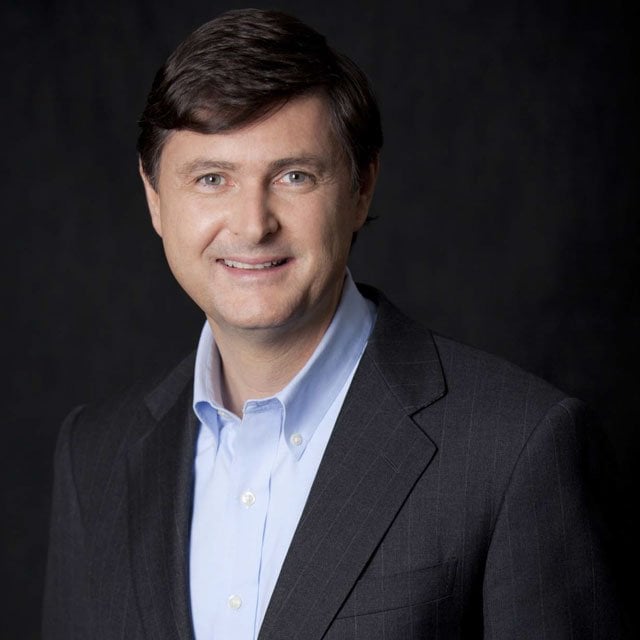'No Better Time Than Challenging Times' for RIAs: Focus Financial's Rudy Adolf

RIAs thrive in challenging times, and that should continue to be the case in 2023, according to Rudy Adolf, CEO of RIA aggregator Focus Financial Partners.
One significant challenge: the struggles of the 60% stock/40% bond investment model as a result of multiple factors including high inflation, Adolf told ThinkAdvisor this summer.
“We see all the challenges everybody else is seeing,” he told ThinkAdvisor in an interview in December. “But, in so many ways for fiduciary wealth management, there’s really no better time than challenging times because this is when there’s a premium for high-quality advice.”
Prudence and a long-term orientation are “really the hallmarks of our industry,” he said. “Particularly in difficult times, our industry shines.”
If you look over the past 15 years or so, “of course our industry gets impacted like anybody else” during tough economic times, he said. But RIAs have performed better than wirehouses during market downturns, he noted, referring to Cerulli data that showed, as one example, that RIAs were down 5% in advisor-managed client assets in 2008 while wirehouses were down 7%.
“Also interesting is that,” in the first year after a crisis, “our industry takes off like a rocket ship,” he said, pointing to Cerulli data showing that RIA advisor-managed client assets grew 17% in 2007 and 2008. That, he said, is “almost double our typical growth rate of 10%.”
Then, in the second year after a crisis, the RIA industry “continues to be growing” while the wirehouses and traditional broker-dealers are “slowly catching up to these levels,” he added.
Meanwhile, Focus continues its aggressive growth plans. After signing or closing a record 38 deals in 2021 (acquiring 14 new partner firms and completing 24 mergers), the firm made 30 transactions in 2022 (including 24 mergers and acquiring six partner firms), according to the company. The firm’s plans for 2023 are comparable, Adolf said.
In late December, Focus announced that it had struck a deal for Boston-based RIA Cooper Lapman Financial — with $341 million in assets under management — to join Focus partner firm The Colony Group. It also said RIA Convergent Financial Strategies of Plymouth Meeting, Pennsylvania — which has nearly $179 million in AUM — would become part of partner firm Buckingham Strategic Wealth. Both transactions are expected to close in the first quarter of 2023.
In the December interview, Adolf discussed more industry challenges and his firm’s expansion plans outside the U.S., among other topics.
THINKADVISOR: What other major trends, including challenges for the sector, are you and your partner firms seeing now?
RUDY ADOLF: I think in so many ways, of course, we are living in the current economy and in the current geopolitical situation. So we see all the challenges everybody else is seeing.
[After the pandemic eased up,] we moved into the second crisis. Of course, that was driven by Ukraine, energy markets, inflation.
What do you expect for the economy and the stock market for the rest of this year and in 2023 and why?
I leave the prognostication of the equity markets in general to the experts. I’m not an economist. I’m just running a little business here.
Having said that, the way we think about our business is we just have to prepare for volatility. The volatility will continue to go on. We will continue to see a challenging macro environment. We are going to continue to see challenging inflationary environments.
Are we in a recession? If not, what is your expectation for one over the next 13 months and why?
The probability of the Fed and the other central banks to over-tighten is very high, which ultimately means some form of a recession. It’s very likely. Hopefully, it’s a shallow recession.
But ultimately, fine tuning of interest rates vs. inflation is very difficult to do. And, quite frankly, the central banks really have no track record of getting this precisely right. So the danger of over-tightening is high. Over-tightening means there’s a recessionary environment and there’s a prudent manager. You basically need to prepare for the worst. But, ultimately, don’t forget that there’s an upside.




